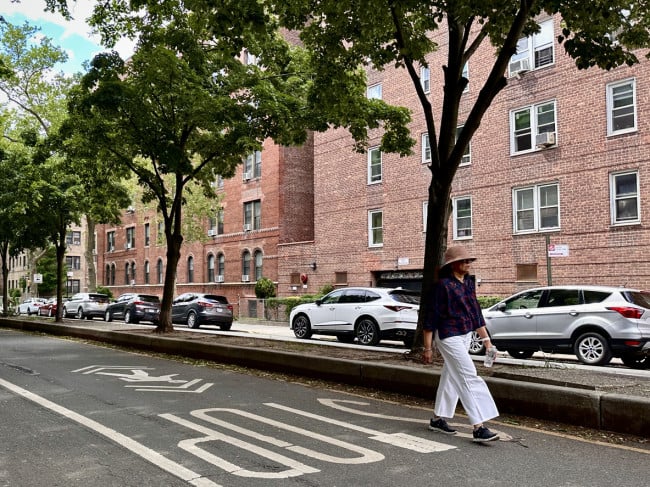Ask Altagracia: My landlord denies offering a rent reduction during a renovation. Can I still pay a lower rent?
- To enforce a rent reduction promised by email, you need a formal lease amendment
- Withholding rent forces the landlord to negotiate but be strategic and expect litigation

You can always withhold rent when disruptive construction work affects the use and enjoyment of your apartment.
iStock
I have emails from the landlord that say my rent will be reduced during a renovation, but they now deny making that offer. Can I still pay a lower rent?
It’s a common misconception that an email or text from a landlord is in some way binding. Emails and texts do not constitute contracts. “A lease is signed by both the tenant and the landlord and any amendment has to be signed in the same manner as the original contract,” said Altagracia Pierre-Outerbridge, attorney and founder of Outerbridge Law representing residential tenants, condo owners and landlords.
This means to enforce a rent reduction that was agreed to over email or text, you would need to have a lease amendment signed by both parties ahead of the renovation work.
The real issue here is whether the landlord will act in good faith and follow through on their text message or email. “If you are seeking legal advice on this, you already have your answer,” Pierre-Outerbridge said.
Negotiating with your landlord
Whether or not there is an email exchange discussing a rent reduction for renovations, you can always withhold rent when disruptive construction work affects the use and enjoyment of your apartment. Withholding rent may encourage your landlord to negotiate.
In order to bring the landlord to the table, the amount you deduct from your monthly rent needs to be meaningful. Your goal in this situation is to force the signing of an agreement on a rent abatement, so withholding $100, for example, may not be enough.
“The way to force a conflict and a resolution is to withhold the entire rent,” Pierre-Outerbridge said. The caveat here is that you have to be ready to be sued and fight it out in court or through an attorney outside of court. “Leverage is often built by having an attorney because it means the landlord will incur legal fees—and you mean business,” she added.
If and when you get to court, a judge will determine how useful the original email exchange is for your case. Either through the court or in negotiation with an attorney, the level of abatement for the renovation work will be finalized.
Be sure to wait until you have the written agreement from the landlord before you retroactively pay any of the rent you withheld.
Altagracia Pierre-Outerbridge, Esq. is the owner of Outerbridge Law P.C, focusing primarily on tenant representation. The firm represents all sides in landlord-tenant litigation and transactional matters such as month-to-month holdovers, nuisance cases, licensee cases, harassment claims, repair cases, tenant buyouts, succession claims, DHCR overcharges and rent reductions and more. Pierre-Outerbridge has 15 years of experience litigating in Supreme, DHCR, and Housing Court. To submit a question for this column, click here. To contact Outerbridge Law P.C. directly, call 212-364-5612 or 877-OUTERBRIDGE, or schedule a meeting today.
You Might Also Like


























